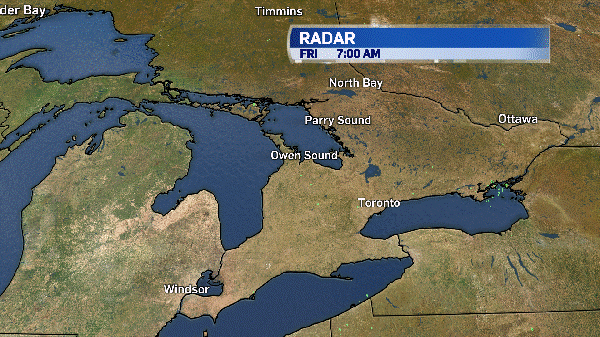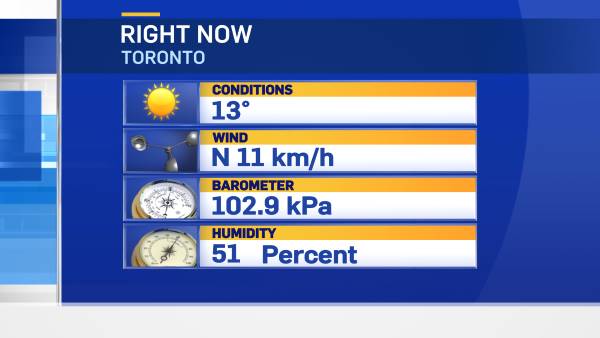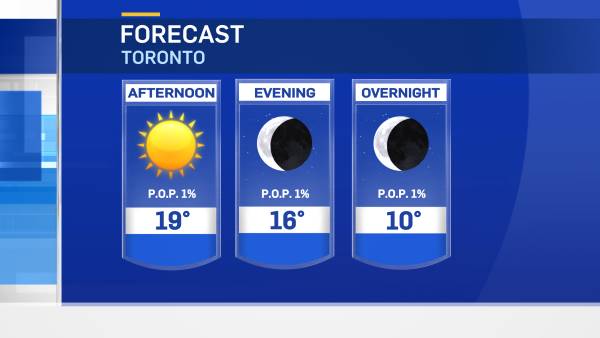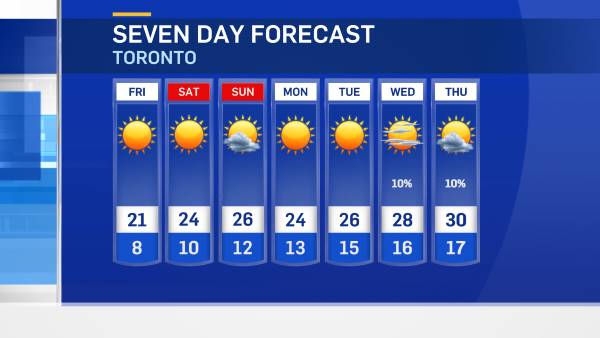Hundreds of flights are cancelled and dozens of collisions were reported after a winter storm blew through the Toronto area, dumping several centimetres of snow.
- Snapped a great weather photo? Submit it here
The storm, which formed over Texas earlier this week, passed through Toronto late Tuesday and early Wednesday, leaving behind approximately 20 centimetres of snow.
The winter weather blew past the city, moving toward southern Quebec and New Brunswick, where it is expected to die out later on Wednesday.
As a result of the storm, hundreds of flights were cancelled to and from Toronto Pearson International Airport, including those heading east where the storm is still present.
As of 10 a.m., 165 arrivals and 83 departures had been cancelled on Wednesday.
Those travelling by car were also affected by the storm. On Wednesday morning, OPP Sgt. Kerry Schmidt said approximately 200 collisions were reported in the Greater Toronto area over the past 24 hours.
Schmidt said there were likely many more that went unreported.
"Please drive safe!" he posted on Twitter.
In the city, plows ran through the night to keep major roadways safe. The City of Toronto plows major roads and highways first, but will be able to focus on side streets now that the snow has stopped.
In a message on social media, the city's Winter Operations representative wrote that local road plowing began at midnight, and will continue until approximately 6 p.m.
The downtown bike lanes have also been salted and plowed.
Extreme cold weather alert in effect
Following the snowfall, the city issued an extreme cold weather alert early Wednesday morning.
The alerts are issued by Toronto Medical Officer of Health David McKeown when temperatures are expected to drop below -15 C, or there are other factors that put the city's most vulnerable residents at risk.
Environment Canada forecasts a high of -5 C on Wednesday, but it will feel closer to -14 with the wind chill. Overnight, temperatures will drop to -11, feeling like -18.
Wednesday's alert is the 11th that has been issued this year. Over the last 10 years, an average of 18 extreme cold weather alerts have been issued each winter in Toronto.
During extremely cold weather, those in the affected area are warned that they can be at risk of frostbite, frostnip and hypothermia. Residents are advised to check on vulnerable friends, neighbours and family members during the alerts.
McKeown's alert warned that the people most at risk of cold-related illness are those who work outdoors, have pre-existing heart conditions or respiratory problems, infants and the homeless.
During the alerts, the city offers additional services for homeless people, including offering TTC tokens, increased street outreach and directions to shelters to relax restrictions. Two 24-hour drop-in centres are also available.
While the alert is in effect, the city recommends:
- Dressing in layers, covering all exposed skin
- Wearing a hat, mittens or gloves and warm boots
- Staying dry
- Choosing wool or synthetic fabrics instead of cotton
- Avoiding alcohol
- Rescheduling outdoor activities










































